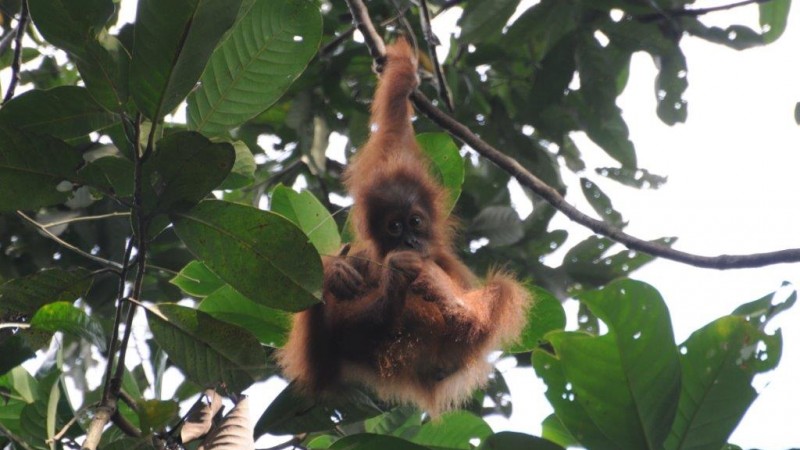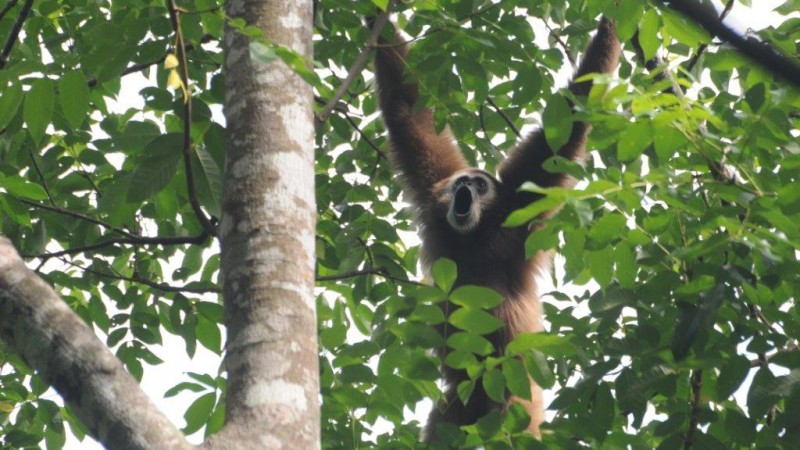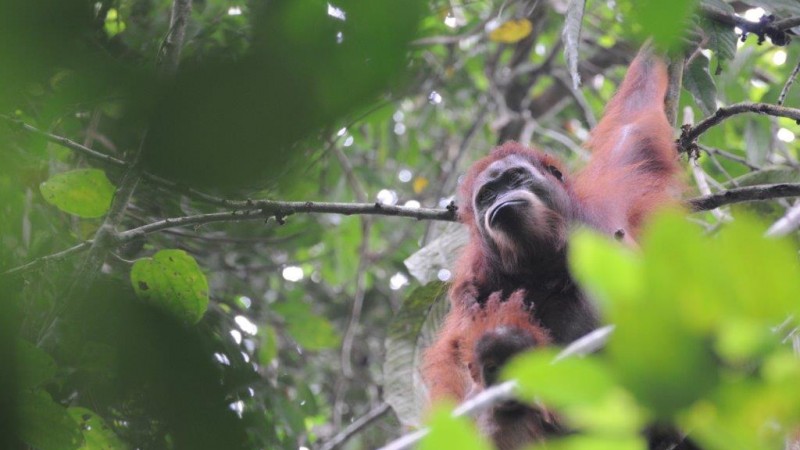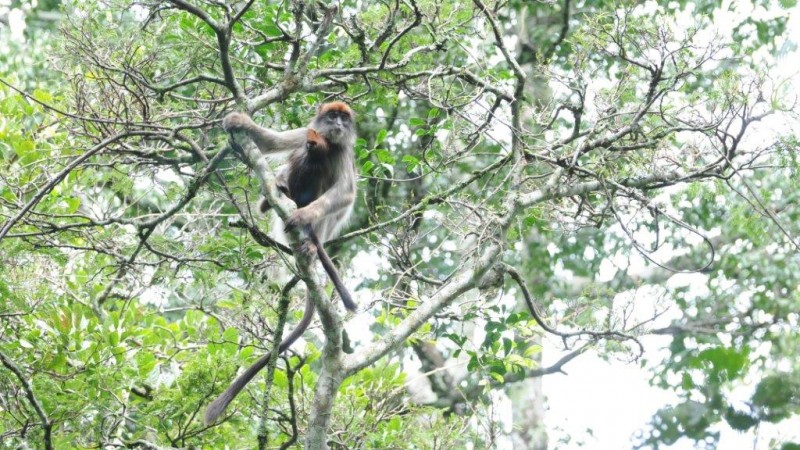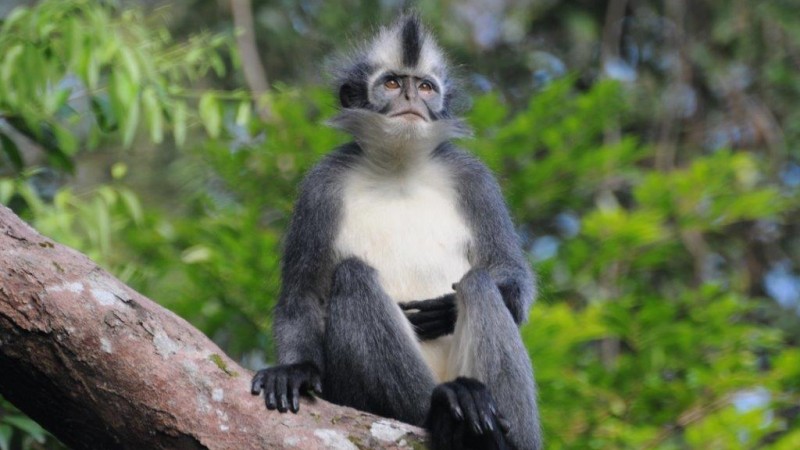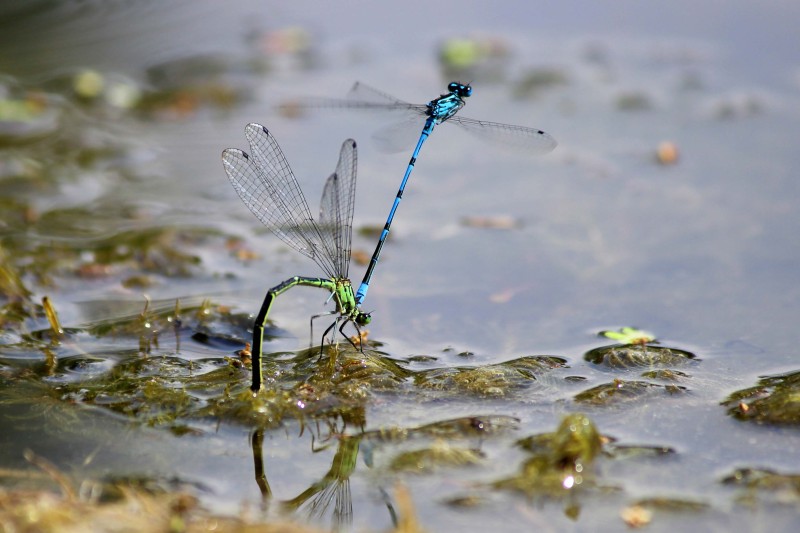Deforestation, encroachment and climate change are causing wide-scale disturbance of tropical forests. Primates, and Sumatran elephants are heavily dependent on these forests for survival. LEAP (Landscape Ecology and Primatology) investigates how tropical deforestation and degradation affect mammal biodiversity and primate distribution patterns in the face of climate change.
LEAP includes landscape ecologists, primatologists, conservationists, biogeoraphers and specialists in remote sensing, .
The LEAP team is led by BU’s Professor Amanda Korstjens, but the international team includes BU's Professor Ross Hill, Professor Serge Wich from Liverpool John Moores University (UK) Matthew Nowak from Earthqualizer (Indonesia), Dr Abdullah from Universitas Syiah Kuala (Indonesia), and Rudi Putra from Forum Konservasi Leuser (Indonesia). In Indonesia, we work closely with the team from the Sumatran Orangutan Conservation Programme (SOCP).
Impact
Monitoring behaviour
The team of researchers have led over a dozen LEAP projects. The majority of research has taken place at a permanent field site in North Sumatra, Indonesia. This monitoring station is run by the SOCP and located within the tropical rainforest of Sikundur.
Primates are so important to a tropical rainforest because they disperse seeds of hardwood trees which are valuable in maintaining a healthy forest ecosystem. Primates are also an iconic flagship species that act as an important ambassador for forest conservation. The Gunung Leuser National Park, where most field work takes place, is unique in harbouring three ape species which are all endangered or critically endangered. This includes the Sumatran orangutan, siamang, and white-handed gibbon.
Research on these primates provides support for local conservation organisations as well as valuable information on how climate change and human forest modifications will alter the ability of these primates to survive. Loss of primates in a forest dramatically affects the most important carbon-storing hardwood trees which are essential in the mitigation of climate change. This changing environment is now being studied by LEAP PhD students accessing microclimates in forest area. This is showing that some more shaded areas of forest remain at a stable temperature and are therefore better suited for primate resting, for example.
In researching the primates’ habitat and behaviour, there can be a better understanding of how primates use their environment and what they need from it to thrive. LEAP’s scientific mapping of rainforest is essential in recording forest quality and in deciding where is best to introduce wildlife corridors or create blockages which prevent animal and human interaction. Aside from using an expensive satellite, a low-cost way to map is by using drones.
Bournemouth University PhD student Christopher March and MRes student Nicola Collins demonstrate how drones are being used to monitor and map areas of the Sikundur rainforest in North Sumatra, Indonesia.
In launching video-recording drones, the team has been able to build up a 3D map of the rainforest and identify the areas that endangered animals need most. This footage has been able to show gaps in vegetation and reveal previously unrecorded heights of trees. The drone map is then cross-referenced with existing maps which show specific areas that animals inhabit. This provides a better picture of where and why animals may spend their day in certain areas during activities such as resting, feeding and travelling.
Professor Korstjens says: “Our research is used by organisations like IUCN and UNESCO to monitor global forest conservation and plan strategies to support biodiversity conservation and forest protection. LEAP’s team have strong connections with these organisations.
“We are finding relationships between the quality of forest structure and the density of primates. Our findings highlight the importance of well-connected canopies and minimally disturbed forest areas, especially for siamangs and gibbons which need tall trees. Using LEAP research, local forestry agencies will be able to plan conservation efforts more efficiently.”
Project Inaudible
Professor Korstjens is now leading a research project exploring the issue of human-wildlife conflict in Indonesia. As land used for agriculture has expanded and further encroached on the territory of native elephants, humans and elephants have increasingly come into conflict. Elephants often raid farmland and village settlements in search of food, which leads to economic hardship for the people affected, as well as leaving them fearful of future attacks. Professor Korstjens and BU Master’s Student Lucy Twitcher are working with Indonesian communities to facilitate safe handling of this unwanted contact.
Project ‘Inaudible’, led by Professor Korstjens, aims to develop an early warning system which can prepare locals for an incoming elephant raid. It is hoped that the system will be able to alert forest rangers of an elephant close to a human settlement so that rangers can respond to best manage the situation.
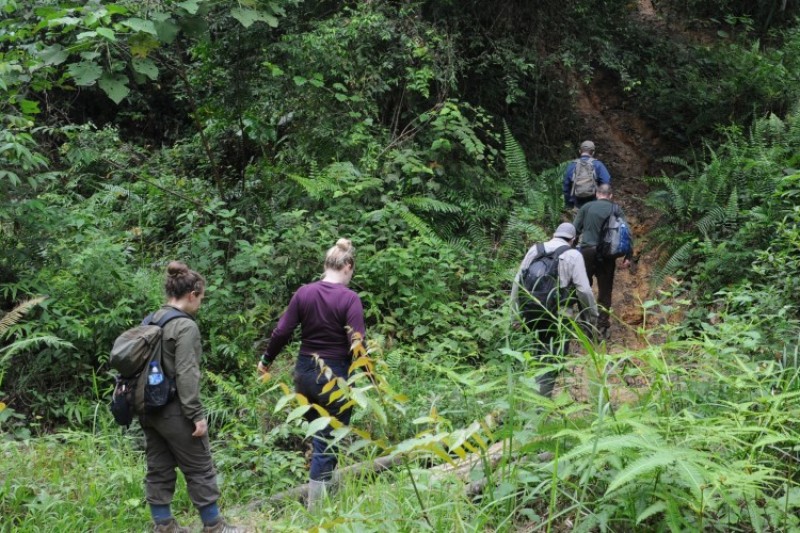 Conserving wildlife and tropical habitats in Indonesia
Conserving wildlife and tropical habitats in Indonesia